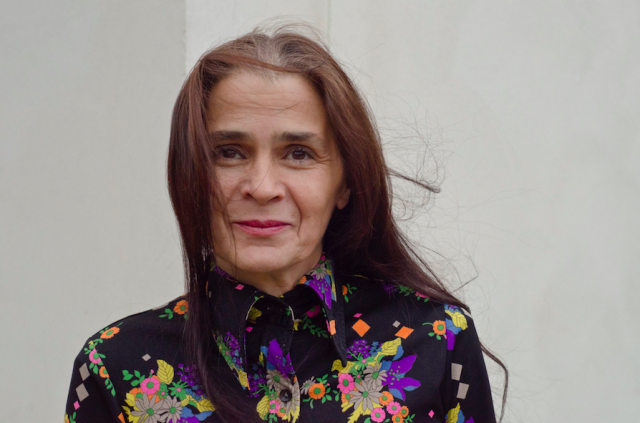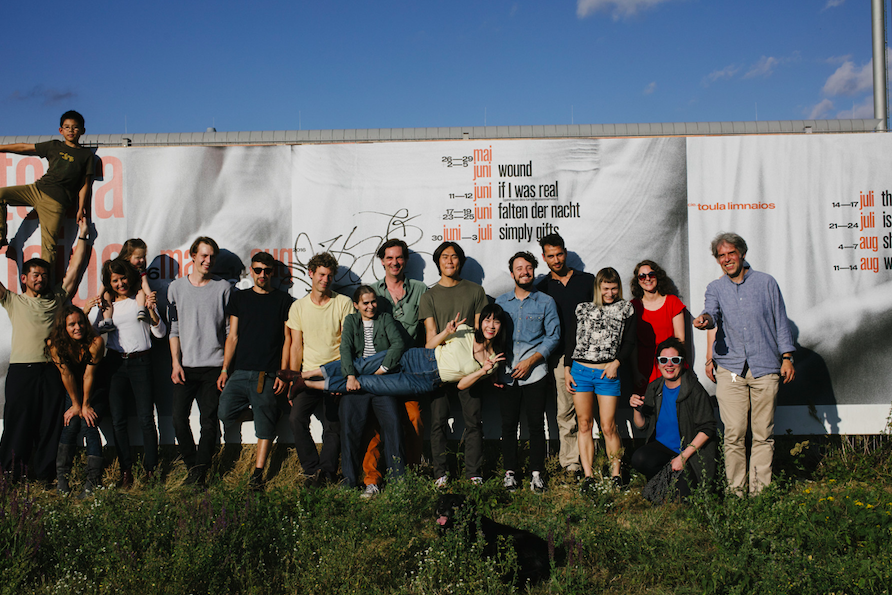
For the English version, please, scroll down.
BERLINO – In che modo gli esponenti più importanti della multietnica comunità di artisti, che hanno fatto di Berlino la loro casa, stanno reagendo a tutte le limitazioni e ripercussioni negative che, in questo periodo di pandemia, sta subendo la loro attività
Ho rivolto questa domanda a Toula Limnaios, una delle figure più eminenti della danza tedesca
Per chi è solo un lettore curioso e non un ‘esperto’ di danza, Toula Limnaios – coreografa e performer greca – è la fondatrice, insieme al compositore Ralf R. Ollertz, della cie. toula limnaios (1996). La compagnia ha sede a Berlino, dove si trova anche l’Halle Tanzbühne, il luogo di produzione e spettacolo della cie. toula limnaios. Le sue creazioni sono state presentate in tantissimi Paesi e in alcuni tra i più prestigiosi e importanti teatri del mondo. Grazie al suo occhio capace di cogliere caratteristiche e aspetti propri della nostra società e di portarli sul palco con il suo modo unico e intenso di raccontare le storie, grazie al suo stile e a un linguaggio del corpo riconoscibile, grazie a un uso consapevole dello spazio e una costante ricerca espressiva, Toula Limnaios rappresenta una delle realtà più interessanti della danza contemporanea.
L’emergenza COVID-19 ha messo in ginocchio il mondo della danza. Qui a Berlino, quali sono state le restrizioni messe in atto per limitare la diffusione della pandemia?
È un periodo molto impegnativo e stimolante per tutti noi e, in questo tempo di crisi, tanti artisti stanno dimostrando inventiva e creatività, forse perché, anche normalmente, sono soliti confrontarsi con intime difficoltà durante il loro processo creativo. In un momento come questo, non si può semplicemente nascondere la testa nella sabbia e rimanere intrappolati dalla paura e dall’ insicurezza, quindi, di fronte alla pandemia ho reagito e, invece di assecondare il panico, ho cercato di vedere questa situazione come un’opportunità per cambiare, per agire, ho affrontato la crisi in un’ottica positiva, prendendola come una occasione per sperimentare.
Un arcobaleno di emozioni ci ha travolto, abbiamo navigato in onde di paura, incertezza…
Le precauzioni che sono state prese qui a Berlino, sono le stesse che la maggior parte dei Paesi europei hanno adottato. C’è stata una chiusura generale delle attività e l’obbligo di mantenere la distanza di 2 metri l’uno dall’altro. Ci hanno invitato a rimanere a casa. Ogni manifestazione culturale e sociale è stata vietata fino alla fine di luglio. Dopo questa data, ogni teatro dovrà sviluppare e sottoporre al Ministero della cultura, il Senat, un concetto molto chiaro relativo alle precauzioni che si intendono adottare per evitare la diffusione del virus, per proteggere i ballerini e il pubblico. Dobbiamo anche indicare il modo in cui pensiamo di esibirci davanti a una quantità ridotta di persone.
Quali sono le conseguenze negative, dovute a queste restrizioni, per le compagnie di danza?
Durante le prime due settimane di lock down, a metà marzo, eravamo completamente paralizzati, sentivamo la mancanza gli uni degli altri, eravamo tutti lontani e ognuno di noi era chiuso in casa, in isolamento, come tutte le altre persone. Ci chiedevamo quale sarebbe stato il futuro. Poi, quando ho deciso di riprendere la mia attività, ho cambiato il mio modo di lavorare, prendendo tutte le precauzioni e le misure di sicurezza contro il virus, e ho stilato un programma molto preciso con sole prove individuali. Attualmente lavoro con un ballerino alla volta e, tra una prova e l’altra, faccio disinfettare e pulire il pavimento. Grazie allo spazio che abbiamo a disposizione all’Halle Tanzbünhe, per noi è stato possibile organizzarci in questo modo.
Stupore e lavoro continuano a coesistere: è ciò che ci tocca che ci trasforma in questi momenti
Tutti i ballerini si sentono al sicuro quando entrano nel nostro teatro. Il 23 aprile avremmo dovuto presentare in anteprima la nostra nuova creazione Brocken mirror, pezzo che parla della normalità e della follia. Sfortunatamente, come tutti, abbiamo dovuto rimandare la premiere a data da destinarsi. Quando, tra un po’, riprenderemo questa creazione, è probabile che le daremo un nuovo impulso. A seguito di questo incredibile periodo di non normalità e follia, potremo arricchirla e incarnare questo argomento in un’altra dimensione. Ecco perché al momento sto lavorando su una serie di assoli per la compagnia. Uno per ogni danzatore: Karolina Wyrwal, Alba de Miguel, Leonardo d’Aquino, Daniel Alonso, Hironori Sugata, e un duo per la coppia italiana Alessio Scandale e Laura Beschi (il nostro nuovo membro che purtroppo non abbiamo potuto presentare fino ad ora).
In Italia, l’arte in generale e in particolare la danza sono tra le attività più colpite dalla crisi. Ben poco è stato fatto per aiutare le categorie più esposte ed economicamente danneggiate dal lock down. In che modo la Germania ha risposto all’attuale stato di emergenza?
Rispetto ad altri Paesi, ci troviamo in una situazione molto privilegiata. Qui il governo sta investendo molti soldi per risollevare l’economia, sta aiutando l’industria automobilistica e altre grandi società. La cultura, come sempre, arriva per ultima, ma, nonostante ciò, gli artisti in Germania si trovano in una situazione di gran lunga migliore rispetto, per esempio, all’Italia.
Per comprendere meglio, bisogna fare una distinzione tra ballerini che, come i nostri, lavorano stabilmente nei teatri, e ballerini free lancers. La situazione dei liberi professionisti della danza è catastrofica. Hanno perso ogni opportunità di lavoro, non sono autorizzati a provare, insegnare o esibirsi e sono costretti a presentare domanda per “Hartz IV” (sussidio per la disoccupazione). Tutt’ora non è del tutto chiaro quale teatro, quali compagnie e quali artisti possano continuare.
Per la cie. toula limnaios la situazione è diversa. Dato che lottiamo da anni per assumere in modo permanente tutti i ballerini e il resto del personale, ora possiamo continuare a pagarli e possiamo usare moduli di supporto come il lavoro a breve termine, «Kurzarbeit». Quindi non possiamo lamentarci e nessuno dei nostri dipendenti deve preoccuparsi di come sopravvivere alla crisi.
Utopia
Nel 2020 abbiamo voluto avviare la nostra rete europea di ensemble Utopia. Abbiamo invitato la compagnia di danza italiana di R. Zappalà. Purtroppo abbiamo dovuto annullare quest’appuntamento, ma faremo tutto il possibile per averla da noi l’anno prossimo.
In Italia hanno tutta la precocità della vita e della danza, ma anche difficoltà economiche in un sistema sanitario molto precario.
Puoi dirmi in che modo la pandemia ha influenzato la tua attività di coreografa?
È difficile lavorare senza un obiettivo preciso e senza sapere quando il pubblico potrà visitare di nuovo i teatri, ma siamo fiduciosi che da agosto sarà di nuovo possibile esibirsi davanti a piccoli gruppi, con una precisa organizzazione: contando i biglietti venduti, il pubblico sarà fatto entrare a scaglioni e, seguendo un timing predefinito, si sposterà da un ambiente performativo all’altro. La ‘riapertura’ del nostro teatro consisterà in un’escursione attraverso l’Halle Tanzbühne, dal giardino, si passerà alla sala per poi arrivare al foyer, in una sorta di escursione, come in un museo vivente. Poi, si potrà assistere alla serie di soli che stiamo attualmente sviluppando.
E come co-direttrice, insieme a Ralf R. Ollertz, in che modo è cambiato il tuo lavoro?
Siamo entrambi direttori, ma abbiamo dovuto affrontare molti compiti diversi, alcuni dei quali completamente nuovi a causa dell’emergenza. Ralf si dedica più all’ufficio, occupandosi di diverse cose allo stesso tempo, tra cui: il nostro programma online, l’informazione e preparazione delle dirette in streaming, le attrezzature per la disinfezione per il teatro, l’incontro con il Senat per garantire la situazione finanziaria. Ciò comporta che, almeno per il momento, la parte artistica della nostra collaborazione è inesistente e che, a causa del virus, le nostre preoccupazioni sono completamente cambiate.
La cie. Toula Limnaios è una delle compagnie di danza più importanti e conosciute non solo in Germania ma anche all’estero. Ad aprile, come persona che segue con interesse e ammirazione le incredibili esibizioni che presenti ogni anno, mi sarebbe piaciuto vedere la premiere del tuo ultimo lavoro: Broken Mirror.
Per far fronte all’attuale emergenza, oltre a posticipare la prima, quali altri cambiamenti hai dovuto apportare al programma relativo alla stagione 2020?
Tutti i nostri tour e spettacoli, compresa la nostra nuova creazione Broken Mirror, sono stati cancellati o rinviati. Abbiamo dovuto reagire a questa attuale emergenza e compensare la nostra ‘immobilità’ con i media digitali. Abbiamo un programma online su Internet https://toula.de, dove, ogni settimana, è possibile visualizzare un pezzo di repertorio della compagnia, film, documentari e interviste. In attesa di poter riaprire al pubblico in agosto, riteniamo assolutamente essenziale mantenere vive le manifestazioni culturali e offrire agli spettatori la possibilità di assistere a interessanti opere artistiche nonostante le attuali restrizioni.
Questa situazione imprevedibile e delicata ti ha ispirato come artista e/o come individuo? Se è così, in che modo?
Ad assaporare il nuovo tempo, a riscoprire l’ozio in un mondo che va sempre più veloce, dove tutti devono funzionare
Questa crisi sta scuotendo il mondo intero, ci sta mostrando e ci dice che non possiamo continuare come abbiamo fatto finora, sta rivelando le lacune nel nostro sistema: potere e interesse politico. Abbiamo visto come l’economia, proprio perché si basa sui consumi, sia crollata dopo soli due mesi e da questa situazione è emersa chiaramente la nostra inadeguatezza a prenderci cura del nostro pianeta.
Quando tutto questo sarà passato, pensi che ci sarà qualcosa di diverso nell’organizzazione delle compagnie di danza o nel modo di lavorare dei ballerini? C’è forse qualcosa che ti auguri possa cambiare?
Se, da un lato, è incoraggiante constatare come in questo momento ci siano state reazioni, da parte degli spettatori e anche della politica, volte a sottolineare l’importanza speciale della cultura, dall’altro, è necessario che, in futuro, qualcosa cambi non solo nella danza, ma nell’intera società. Per vivere meglio, dovremmo assumerci maggiori responsabilità e sviluppare un più profondo spirito di solidarietà. La cultura è di esistenziale importanza per una società aperta e democratica. Dobbiamo allontanarci dai progetti di breve durata, dallo sfruttamento e andare verso il rispetto e il riconoscimento pieno del lavoro degli artisti.
Secondo te, ci sono alcuni insegnamenti positivi che gli artisti dovrebbero trarre da questo momento difficile? Se potessi dare un messaggio ai tuoi danzatori, quale sarebbe?
Dobbiamo imparare a convivere con una montagna di insicurezza. Il campo della cultura è senza dubbio uno dei più colpiti, in particolare le arti dello spettacolo. Dobbiamo imparare da questa ‘crisi storica’, determinata del Covid -19 e dal conseguente lock-down, per ottenere giustizia. Abbiamo l’enorme possibilità di riflettere o persino cambiare il nostro modo di lavorare, il nostro modo di vivere, il nostro modo di pensare, i nostri schemi, le nostre abitudini ecc.
Perché se c’è una cosa che questa situazione attuale ci offre, a dispetto di tutto quanto sta succedendo, è la possibilità di scegliere.
Per me, la danza rimane al centro dell’attenzione. Ciò significa continuare lavorare con i ballerini, creare, avere un contatto fisico e fare tutto ciò che ci rende umani… e non c’è modo che i media digitali possano sostituire quest’esigenza. »Arts vivants» le arti dello spettacolo possono accadere solo se c’è un pubblico. La danza esiste solo nel momento, e poi scompare, questo è la caratteristica della danza. La danza è vitale e rimarrà tale.

How are some of Berlin’s most important international artists reacting to all the negative repercussions and limitations imposed on their work during the pandemic?
I asked this question to Toula Limnaios, one of the most eminent figures in the German dance scene.
For those of you who are simply curios readers and not experts in world of dance, Toula Limnaios is a Greek choreographer and performer who, in 1996, founded cie. toula limnaios with the composer Ralf R. Ollertz. Her company is based in Berlin and has its own theatre: the Halle Tanzbühne Berlin. Her pieces have been performed in many countries and in many prestigious and important theaters around the world. She has an eye for grasping aspects of our society and bringing them onto the stage with her unique and intense way of telling stories through body language. With her use of space and a constant expressive research, she represents one of the most interesting lenses of contemporary dance.
The COVID-19 emergency has put the dance world in a really difficult situation. Here in Berlin, what restrictions have been put in place to limit the spread of the pandemic?
It’s a very demanding and challenging time for all of us and many artists are very inventive and creative in times of crisis, maybe because they experience it already within their inner process of creation. We couldn’t just stick our heads in the sand and be trapped by the fear and insecurity during the lockdown. I had to act, and instead becoming overwhelmed by the panic, I transformed it and saw the situation as an opportunity and a chance to change, to act and to potentially experience the crisis from a positive perspective.
The whole rainbow of emotions overwhelmed us, we were surfing in waves of fear, uncertainty, unpredictable times…
The precautions here in Berlin were like most other countries in Europe, where a lockdown was also imposed; keeping a distance of 2 meters, staying home. All cultural and social gatherings were and still are forbidden until the end of July. From then on each theater has to develop and submit a very clear concept outlining their precautions to prevent the spread of the virus to ministry of culture, the Senat. The measures are meant to protect dancers and the public and to make it possible to show performances to a reduced number of people in the audience.
What are some adverse of consequences of these restrictions for your dance company?
During the first two first weeks of complete lock down/quarantine back in mid March we were completely paralyzed, missing one another, spread out and each of us was isolated in their own homes like everyone else, wondering what the future would bring…? But then I decided to work and I changed my way of working and made a very precise schedule with individual rehearsals, all precautions and measures were taken to protect ourselves from the virus. I work with only one dancer at a time and between each individual rehearsal we disinfect and clean the floor before meeting with another dancer. It was possible for us to work in that way, because of our space, the Halle.
Astonishment and work continue side by side; it’s what touches and transforms us in these difficult moments.
All dancers feel safe when they come into the Halle. On April 23rd we were supposed to premiere our new creation «broken mirror» which is about normality and madness. Unfortunately like everyone else, we had to postpone it until, we don’t actually know when… We will retake this creation later on and maybe it will give it a new impulse after this incredible time of non-normality and the madness that we are living in, enriching and embodying this topic on another dimension. That’s why I’m now working on a series of solos for the company for each dancer; Karolina Wyrwal, Alba de Miguel, Leonardo d’Aquino, Daniel Alonso, Hironori Sugata and one duo for the Italian couple Alessio Scandale and Laura Beschi (our new member that unfortunately we could not present until now).
In Italy artists and dancers are some of the most negatively affected by the pandemic. How has Germany responded to this current situation?
Compared to other countries, we are in a very privileged situation. Essentially, artists in Germany are in a much better situation than Italy for example. At the moment the government is investing a lot of money in the economy for the car industry or other large corporations, but culture, as always, comes last.
But you have to look closely and differentiate between employed dancers at theaters like ours and self-employed dancers. The situation for self-employed dance professionals is catastrophic. They have lost every opportunity to work, thy are not allowed to rehearse, teach or perform and are forced to apply for «Hartz IV». It is completely uncertain which theater, which companies and which artists can continue to work.
For the cie. toula limnaios the situation is different. Since we have been fighting for years to employ all dancers and staff permanently, we can continue to pay them now and we can use support modules like short-time work, «Kurzarbeit». So we cannot complain and not one of our employees needs to worry about how they will survive.
Utopia
In 2020 we wanted to start our European ensemble network »utopia« with the invitation of the Italian dance company of R. Zappalà. Unfortunately we had to cancel it, but we will do everything we can to invite them back next year.
In Italy they have all the precocity of life and dance as well as the economical difficulties within a very rocky medical system.
Can you tell me how has the pandemic been affecting your activity as choreographer?
It is also difficult to work with the uncertainty of a goal and knowing when the public will be able to visit theaters again, but we are confident that from August it might be possible in small groups with a precise concept of the action and timing tickets: counting the tickets sold, the public will be allowed to enter in small groups and, according to a predefined timing, they will move from one performative space to another. The “reopening” of our theater will be a hike through the hall, from the garden, through the hall up to the foyer, walking through miniatures like in a living museum. And then the series of solo pieces that we are currently developing.
As company director, how has the pandemic been affecting your work alongside the composer Ralf R. Ollertz?
We are both directors but we had to deal with many different topics, some very new due to the emergency of the situation, Ralf spends more in the office, dealing with many things at the same time: our online program, information and preparation about live streaming, disinfecting equipment for the theater, meeting with the Senat to secure our financial situation. This means that, at the moment, the artistic part of our collaboration is nonexistent, and has shifted our concerns due to the virus.
The cie. Toula Limnaios is one of the most important and well-known dance companies not only in Germany but also internationally. As a person who follows the incredible performances you present every year with interest and admiration I would have loved to have sees the premier of your latest piece: Broken Mirror in April.
Can you give me a few examples of some changes you have had to make to your program for the 2020 season in order to cope with the current emergency?
All of our tours and performances were cancelled or postponed, our new creation « broken mirror » as well. We have had to react to this current emergency and compensate our « immobility » with digital media like our online program on the internet https://toula.de, where you can view one piece by the company each week, films, documentaries and interviews.
We have new work planned from August onwards, meanwhile we believe it is absolutely essential to maintain LIVE cultural manifestations and to offer spectators exciting artistic works despite the restrictions.
Has this unpredictable and delicate situation of the current pandemic inspired you as an artist or as an individual? If so, how has it inspired you?
To savour time again, to rediscover idleness in a world that is going faster and faster, where everyone has to «function».
Having avoided to see and to confront reality, pretending that everything was going well, it brought us to these consequences, this crisis is shaking the entire world, it’s showing and telling us that we cannot continue in the way we have up until now, it’s revealing the gaps in our system, the power and political interest, we’ve seen how the economy collapsed after only 2 months because it is based on consumption and how we don’t take care of our planet.
Moving forward, what do you see changing in the future of dance companies and artists alike? Is there perhaps something that you think should change?
On the one hand, there have been a lot of encouraging reactions from spectators and also from politics, which have emphasized the special importance of culture right now. We think something has to change in our whole society. We need more social responsibility in the spirit of solidarity for our cohabitation. Culture is existentially important for an open and democratic society. We have to move away from short-lived projects, from self-exploitation and towards respect and acceptance for the work of artists.
In your opinion, are there some positive effects from this challenging time that artists should learn from or make use of? If there is a message you would like to give to your dancers, what would it be?
«In the meantime, we have to learn to live with a mountain of insecurity, and the field of culture is undoubtedly one of the most affected, especially the performing arts. We need to learn from this “historical break”, by which I mean the lockdown due to the Covid -19 as well as the virus in order to bring about justice. We have an enormous chance to think, or even rethink our way of working, way of life, our thoughts, patterns, our habits etc…
Because if there is one thing that this current situation offers us in spite of everything that’s going on, it’s the possibility to choose.
For me, dance remains the focus, which means working with dancers, creating, dealing with physical contact, everything that makes us human … and there is no way that digital media can replace that. »Arts vivants»/performing arts can only happen if there is an audience, dance only exists in the moment, and then it disappears, that’s the process with dance. Dance is vital and will remain so.














































